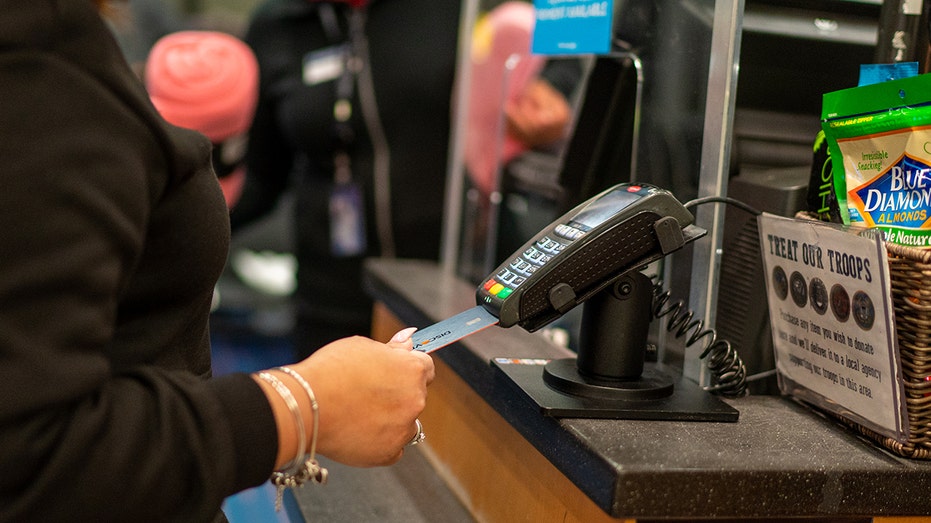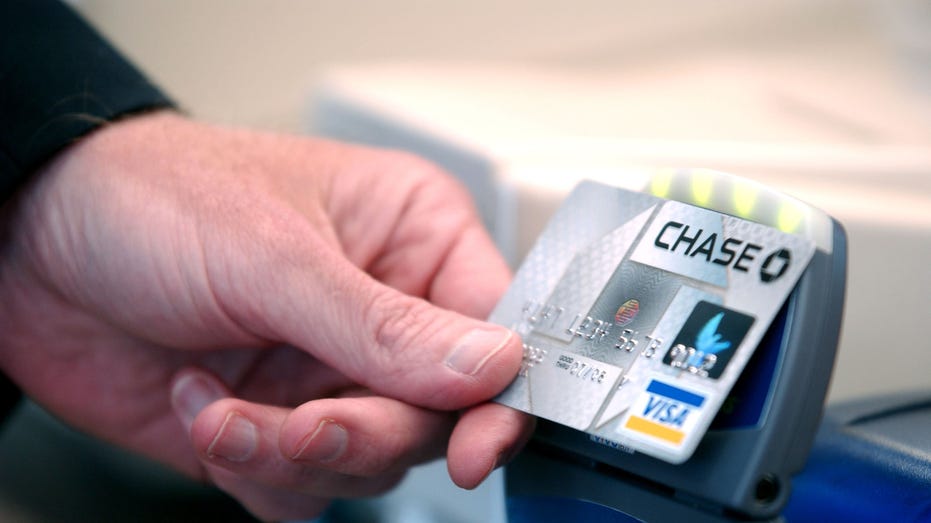States with highest, lowest credit card debt burdens ranked in new report
Report compared states' average credit card balances, annual household income to find average payoff period
Why have credit card delinquencies spiked?
Panelists Ben Levisohn, Carleton English and Andrew Bary react to the jobs report on "Barron's Roundtable."
A new report by CreditCards.com reveals which states have the highest and lowest credit card debt burdens and where consumers may find it easier or more difficult to pay off that debt based on their earnings.
The report, released Tuesday, found that Mississippi ranked as the state where consumers have the highest average credit card debt burden relative to their income, whereas residents of Massachusetts had the lowest.
Those findings were based on an analysis by CreditCards.com of average credit card balances, average annual household income, months to pay off credit card balances, and total interest paid by households in various states.
"In comparing average credit card balances with average household incomes, this study seeks to determine where credit card debt is more and less difficult to pay off," said CreditCards.com Senior Industry Analyst Ted Rossman. "Mississippi, for example, has the sixth-lowest average credit card balance, which sounds pretty good. But it has the lowest average household income of any state. Comparatively speaking, that makes credit card debt much harder to pay off in the Magnolia State."
CREDIT CARD DEBT SET TO HIT $1T AS CHRONIC INFLATION CRUSHES AMERICANS

A report by CreditCards.com found that Mississippi was the state with the highest credit card debt burden when accounting for income while Massachusetts had the lowest. (Robert Nickelsberg/Getty Images / Getty Images)
"This contrasts with Washington, D.C., for example, where the average resident has about $1,500 more in credit card debt but an average household income that’s more than $70,000 higher," Rossman added.
In terms of the states with the heaviest credit card debt burdens relative to income, Mississippi ranked highest with an average balance of $4,972, an average annual household income of $68,048 and a 22-month payoff period.
FED PAUSE LIKELY WON’T HELP STRUGGLING CONSUMERS
Two other southern states and two from the mountain west ranked behind Mississippi:
- Oklahoma ranked second with an average credit card balance of $5,491, compared to a $75,430 average annual household income for a 21-month payoff period.
- Louisiana ranked third with a balance of $5,429 and an average household income of $75,590 for a 21-month payoff period.
- New Mexico ranked fourth with an average balance of $5,398 compared to an annual household income of $76,989 – which also amounted to a 21-month payoff period.
- Nevada ranked fifth with an average credit card balance of $6,175 and a household income of $89,961 for a 20-month payoff period.
Massachusetts fared the best in the CreditCards.com report, coming in with an average credit card balance of $5,633, compared to an average annual household income of $124,789 – which amounted to a 13-month payoff period based on the report’s assumption of 5% of monthly gross income being allocated to credit card debt.
NEW CREDIT CARD BILL TARGETING VISA-MASTER CARD ‘DUOPOLY’ TRIGGERS LOBBYING ONSLAUGHT

Americans' aggregate credit card debt remained around an all-time high of $986 billion in the first quarter of 2023. (Thomas Cooper/Getty Images)
Washington, D.C., also had a 13-month payoff period based on an average credit card balance of $6,519, compared to an average household income of $138,856 per year. Though it is a district and not a state, it ranked second when included with the 50 states.
The three states that rounded out the top five areas with the lowest credit card burdens relative to income each had a 14-month payoff period and ranked as follows:
- Minnesota ranked third with an average credit card balance of $5,197 versus an annual household income of $103,305.
- New Hampshire ranked fourth with an average balance of $5,712 and an annual household income of $111,908.
- California came in fifth with an average credit card balance of $6,038 versus an average household income of $120,953.
GET FOX BUSINESS ON THE GO BY CLICKING HERE
The report comes after the Federal Reserve Bank of New York’s Quarterly Report on Household Debt and Credit released in May found that Americans’ aggregate credit card debt remained around an all-time high of $986 billion.
